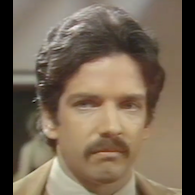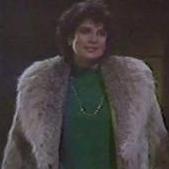-
Recently Browsing 2 members
-
Recent Posts
-
By Contessa Donatella · Posted
https://www.instagram.com/p/DJmV5kCJpd6/ 1996 Daytime Emmy Awards Opening & 1st Emmy In Primetime, on CBS, at Radio City Music Hall, NY, NY Hosts: Eric Braeden & Melody Thomas Scott, featuring the Rockettes! Best Supporting Actor nominees: GL Frank Beatty, B&B Ian Buchanan, GH Stuart Damon, AW David Forsyth, GH Michael Sutton, GL Jerry verDorn & Jerry takes home his second statue! In accepting he shouts out Bill Roerick. -
Nope still in development. ABC/Disney are having their upfronts today though, so there's a very slight hope we might get an update.
-
Has anyone ever posted January and February 1974? I can't find them in the 'Look Back to 75' thread. Thanks.
-
Did January and February 1974 DSN ever get posted? I can't seem to find it in this thread.
-
I agree. Especially after SilkPress got back to her apartment and started to mock Nicole. Her dislike for Nicole and seeing her as a threat to her getting Teddy Bear is growing worse. So I could see her pulling a kidnapping on Nicole at some point. If anything she was going there to poke the bear and got pressed (pun unintended) when the bear gathered her. Completely understandable.
-
Beyond The Underwear Oops I mean Gates!
Please register in order to view this content
-
I swear this entire time I thought Roman knew about the Phillip/Vivian letter lol. I do like how mature Roman/Kate are as a couple. It makes me sad the new writers never got a chance to write for John/Marlena. I agree with @AbcNbc247 that the Felicity stuff is a bit after school special-y. I am pretty sure that (most) of the viewing audience is aware that a grown man should not be shouting at any teenage girl especially one with disabilities. Just let Xander apologize and move on. Linsey Godfrey was in her Sarah baby voice mode today and it irritates me to no end. I know it's a cutesy thing her and Xander do but it's annoying. Bringing Kevin back is strange, but I do like the use of history. I do think Rex probably could have been used instead, but whatever. I don't care about Rex much either lol.
-
I mean over the past decades. But I do agree that in recent years now, the writing is not working for them as well as it used to then. It's same old, same old...which is what made the Damian storyline refreshing. At least for me.
-
Did Denise give any interviews where she talked about her first few years on GH... '73-75? I wonder if she had any regrets leaving Days for GH, as from what I've read, the show was in the dumps writing-wise, so am thinking she didn't have great story? Any Leslie story highlights I've seen always start with '76, after Gloria Monty took charge.
-






.thumb.png.5c728e3a5029e28d95defc3cf6a72cdb.png)

Recommended Posts
Join the conversation
You can post now and register later. If you have an account, sign in now to post with your account.